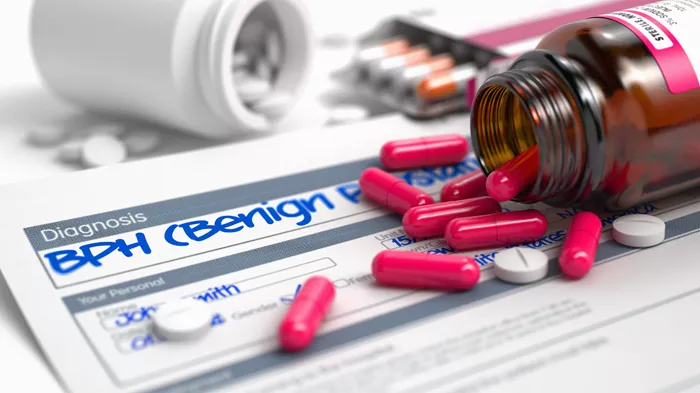Prostate enlargement, or benign prostatic hyperplasia (BPH), is a prevalent condition affecting older men, leading to various urinary symptoms such as increased frequency, urgency, and difficulty in urination. While medical treatments are widely available, many individuals seek home remedies to alleviate symptoms and improve quality of life. This article explores five effective home remedies for managing prostate enlargement, offering a blend of dietary, lifestyle, and natural approaches that may complement traditional treatments.
Dietary Adjustments
Incorporating Anti-Inflammatory Foods
Diet plays a crucial role in managing prostate health. Foods rich in antioxidants and anti-inflammatory properties can help reduce inflammation in the prostate and urinary tract.
Fruits and Vegetables: Berries, tomatoes, and leafy greens are excellent sources of vitamins and antioxidants. Lycopene, found in tomatoes, has been particularly associated with reduced prostate enlargement.
Healthy Fats: Incorporating sources of omega-3 fatty acids, such as fatty fish (salmon, mackerel), walnuts, and flaxseeds, can help mitigate inflammation.
Avoiding Irritants
Certain dietary choices can aggravate urinary symptoms associated with prostate enlargement. Identifying and avoiding these irritants can lead to significant symptom relief.
Caffeine: Found in coffee, tea, and some sodas, caffeine can increase urinary frequency and urgency.
Alcohol: Consuming alcohol can irritate the bladder and worsen urinary symptoms.
Spicy Foods: Spices can exacerbate symptoms for some individuals, making it essential to monitor personal reactions to different foods.
Herbal Supplements
Saw Palmetto
Saw palmetto is one of the most researched herbal remedies for BPH. Derived from the fruit of the Serenoa repens plant, it has been shown to alleviate urinary symptoms effectively.
Mechanism of Action: Saw palmetto may inhibit the conversion of testosterone to dihydrotestosterone (DHT), a hormone linked to prostate enlargement.
Dosage: Common dosages range from 160 mg to 320 mg per day, taken in divided doses.
Pygeum Africanum
Pygeum Africanum, extracted from the bark of the African plum tree, has been traditionally used to treat urinary disorders.
Benefits: Research suggests that pygeum may improve urinary flow and reduce nighttime urination (nocturia).
Dosage: Standardized extracts of 100 to 200 mg per day are often recommended.
See also: 3 Home Treatments for Prostate Enlargement: A Quick Guide
Lifestyle Changes
Regular Exercise
Maintaining a healthy lifestyle through regular exercise can significantly impact prostate health. Physical activity promotes overall well-being and can help reduce symptoms of BPH.
Types of Exercise: Aerobic exercises, such as walking, swimming, or cycling, combined with strength training, can improve urinary function and quality of life.
Frequency: Aim for at least 150 minutes of moderate-intensity aerobic activity per week, along with muscle-strengthening activities on two or more days.
Stress Management Techniques
Chronic stress can exacerbate symptoms related to prostate enlargement. Implementing stress management techniques can be beneficial.
Mindfulness and Meditation: Practicing mindfulness or meditation can help reduce anxiety and improve overall mental well-being.
Yoga and Deep Breathing: Incorporating yoga and deep-breathing exercises can promote relaxation and may alleviate symptoms related to BPH.
Hydration Practices
Optimal Fluid Intake
Proper hydration is essential, but managing when and how much to drink can help reduce urinary symptoms.
Fluid Management: Aim to drink adequate fluids throughout the day, but consider reducing intake in the evening to minimize nighttime urination.
Types of Beverages: Favor water and herbal teas while limiting caffeine and alcohol.
Herbal Teas
Certain herbal teas can provide beneficial effects on prostate health.
Green Tea: Rich in antioxidants, green tea may help reduce prostate enlargement due to its anti-inflammatory properties.
Hibiscus Tea: This tea has been associated with lowering blood pressure and may support overall prostate health.
Home Remedies
Warm Baths
Warm baths can provide immediate relief from pelvic discomfort and promote relaxation.
Benefits: Soaking in warm water can help soothe the pelvic region, reduce muscle tension, and improve blood flow, which may alleviate urinary symptoms.
Hot Compresses
Applying a hot compress to the lower abdomen can also provide comfort.
Application: Use a warm, damp cloth or a heating pad for 15-20 minutes to help relax the pelvic muscles and reduce discomfort.
Conclusion
Managing prostate enlargement through home remedies can significantly improve symptoms and enhance quality of life. Dietary adjustments, herbal supplements, lifestyle changes, hydration practices, and specific home remedies offer valuable options for those seeking relief from BPH. It is essential to consult with a healthcare professional before starting any new treatment to ensure safety and efficacy.
FAQs
1.What are the first signs of prostate enlargement?
Common signs include frequent urination, especially at night, a weak urine stream, and difficulty starting or stopping urination.
2.Are home remedies safe to use with prescribed medications?
While many home remedies are generally safe, it is crucial to consult with a healthcare provider to avoid potential interactions with prescribed medications.
3.How long does it take to see results from these remedies?
The time frame for experiencing relief can vary; some may notice improvements within a few weeks, while others may take longer.
4.Can lifestyle changes alone manage prostate enlargement?
While lifestyle changes can significantly help, combining them with medical advice is often the most effective approach for managing BPH symptoms.
Related articles:


